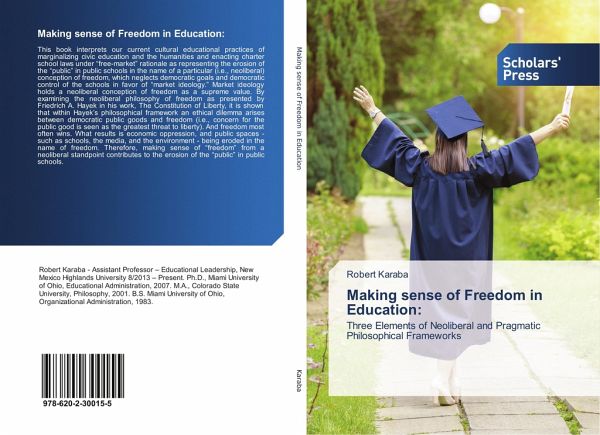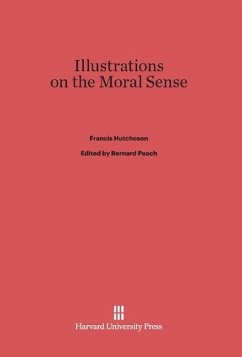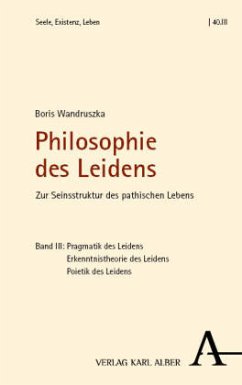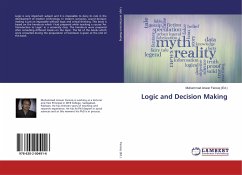
Making sense of Freedom in Education:
Three Elements of Neoliberal and Pragmatic Philosophical Frameworks
Versandkostenfrei!
Versandfertig in 6-10 Tagen
40,99 €
inkl. MwSt.

PAYBACK Punkte
20 °P sammeln!
This book interprets our current cultural educational practices of marginalizing civic education and the humanities and enacting charter school laws under "free-market" rationale as representing the erosion of the "public" in public schools in the name of a particular (i.e., neoliberal) conception of freedom, which neglects democratic goals and democratic control of the schools in favor of "market ideology." Market ideology holds a neoliberal conception of freedom as a supreme value. By examining the neoliberal philosophy of freedom as presented by Friedrich A. Hayek in his work, The Constitut...
This book interprets our current cultural educational practices of marginalizing civic education and the humanities and enacting charter school laws under "free-market" rationale as representing the erosion of the "public" in public schools in the name of a particular (i.e., neoliberal) conception of freedom, which neglects democratic goals and democratic control of the schools in favor of "market ideology." Market ideology holds a neoliberal conception of freedom as a supreme value. By examining the neoliberal philosophy of freedom as presented by Friedrich A. Hayek in his work, The Constitution of Liberty, it is shown that within Hayek's philosophical framework an ethical dilemma arises between democratic public goods and freedom (i.e., concern for the public good is seen as the greatest threat to liberty). And freedom most often wins. What results is economic oppression, and public spaces - such as schools, the media, and the environment - being eroded in the name of freedom. Therefore, making sense of "freedom" from a neoliberal standpoint contributes to the erosion of the "public" in public schools.












